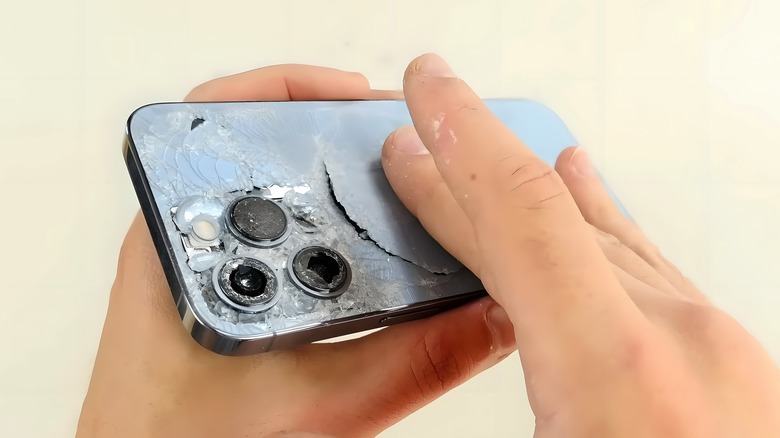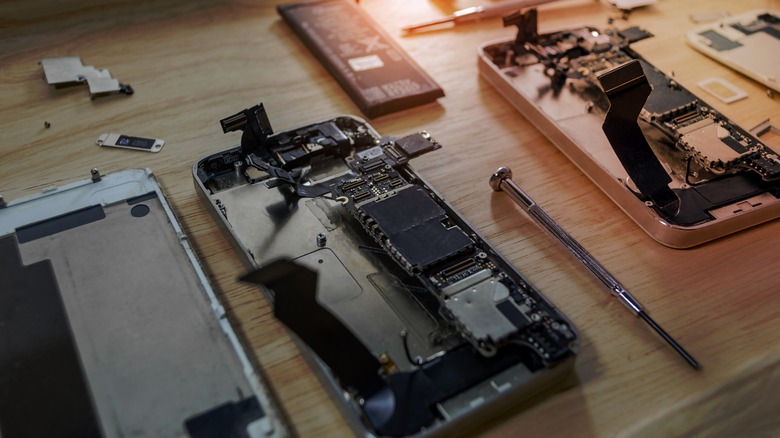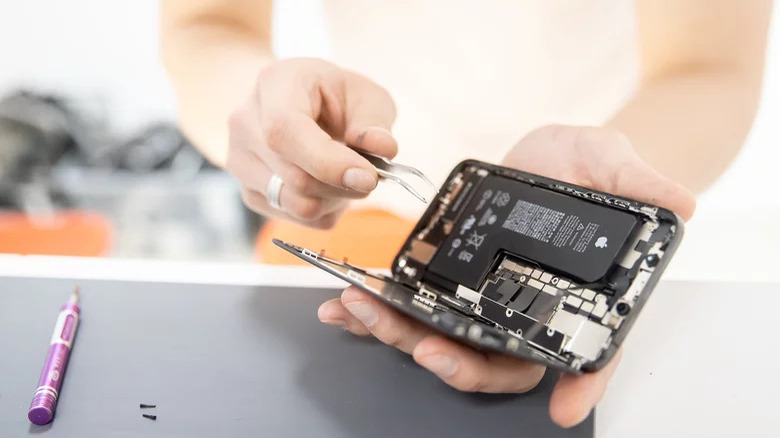iPhone Repairs Could Get Cheaper And Easier As Apple Green Lights Used Genuine Parts
Repairing an iPhone easily burns a hole in your pocket. Despite this, Apple has long opposed repairs at the users' end, invoking the use of genuine parts and citing concerns about privacy and data security. So, its support for California's recently implemented right-to-repair law came as a shocker to everyone who had been at odds with Apple for years before its sudden change of heart.
Today, the company makes another shocking and equally pleasing announcement, opening the gates for third-party repairs with used genuine parts for "select iPhone models." Starting in the fall of this year, certain parts on iPhones will become eligible for repairs with parts salvaged from used iPhones. This is a welcome step, as it encourages users to get broken or faulty parts on their iPhones repaired with genuine parts without spending a fortune, instead of succumbing to cheap alternatives.
Apple notes that used parts will now enjoy the same support in terms of security measures as factory firsts. This means repairers will be able to calibrate old parts — a key step to legitimizing repair parts and avoiding any activation locks — just like new ones. Existing calibration machinery will support older used parts starting later this year.
Deadlock for stolen or lost iPhone parts
While mechanical parts like buttons and back panels could be used previously as well, today's announcement extends this to crucial components such as displays, cameras, and the battery. Apple says biometric hardware, such as Face ID and Touch ID sensors, will also be added to the list "in future," but does not specify a timeline for this update.
The program also removes the mandatory requirement to share your iPhone's serial number while ordering new parts from Apple's self-service repair store — except in cases when the entire motherboard needs replacements. The company doesn't specify whether it plans to sell used parts online or extend its refurbishment program to parts, so we assume it either wants you to (for now) buy new parts, or fish for older ones by yourself. That's fair since used parts will fetch lesser profits than new ones, given the complexity of fixing or salvaging.
Apple, however, mentions that it will flag parts from an iPhone that's either lost or stolen. That is because dismantling the iPhone for parts is usually the last resort for hackers if you don't respond to their attempts at baiting you into removing the iPhone from the "Find My" app. Therefore, any parts from stolen iPhones will trigger an activation lock, effectively making them useless for repairs — just make sure to turn on Stolen Device Protection on your iPhone to thwart their efforts.
Only select iPhone models covered
When the new repair features kick in, information about whether the part is new or used will also appear in the Parts and Service History under the About section in the iPhone's General Settings.
Apple's harping on its commitment to the environment here does not immediately undo years of resistance to ease of reparability. Still, today's announcement is a welcome and appreciable step in the right direction. John Ternus, senior VP of hardware engineering at Apple, mentions this would be another way for users to repair their iPhones using "parts that won't compromise users' safety, security, or privacy." It says the Self Service Repair program, allowing users to repair and calibrate genuine parts just like at an authorized service center, now extends to 40 products in 33 countries.
At the same time, the current allowances for used parts will be limited to "select iPhone models." While Apple doesn't specify which ones, it informed the Washington Post of its intent to limit this to iPhone 15 and newer models. This would effectively prevent matching parts — such as a Face ID module — from, say, an iPhone 14 from being used to repair an iPhone 15 or vice versa. These choices make us question Apple's true commitment to reducing e-waste and saving the environment.
Meanwhile, ingenuine replacement parts will continue to work as they currently do — following legislation in states including New York, Oregon, Minnesota, and California, but Apple will not extend measures to calibrate those.


